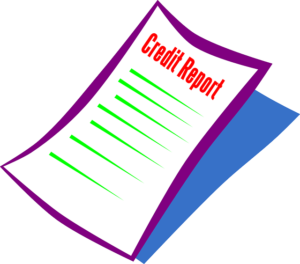A credit score is a three-digit number that indicates how well you manage your credit and can tell you if you need to improve your credit score or not. Lenders and other financial institutions use this score to determine whether you qualify for a loan or credit card. Also, this score determines the terms of your loan, repayment period, and/or interest rate. A good credit score results in favorable terms. A bad credit score goes as far as disqualifying you for a loan or other forms of credit. If you have a bad credit score, in some cases you would need to improve your credit score before you could get approved for a loan or credit card.
The good news is – you can improve your bad credit score! Unfortunately, improving your credit score is not a quick and easy process. It is a journey that requires patience and practicing good financial discipline. Don’t let this seem overwhelming though. There are some easy things you can do right away that can give your score a boost.
The first step is to check your credit score to see where you stand. Then, follow the guidelines outlined below to begin improving your score.
Check your credit report for errors
You are entitled to one free report per year. After you request the report, please review it carefully for any errors you need to dispute. Let the credit bureau know of any wrong or outdated information so they can make the necessary corrections. After the errors are resolved, you should notice a significant improvement in your credit score. Be sure you do this again every year.
Pay your loans on time
Paying your loans on time is by far the most effective method of improving your credit score. Payment history contributes to 35% of your FICO credit score. Why? Your past predicts how you will perform in the future. No lender wants to risk loaning to someone with a history of late payments.
Even if you’re only a few days late, delinquent payments harm your credit score. In fact, one late payment can affect your credit score for a full two years! What’s worse on your score is a collection. Having a collections account on file is a record that stays on your credit report for seven years.
You can avoid late payments by using payment reminders – most financial institutions, including banks, have that option on their online portals. You can also set reminders on your phone or computer. Whatever works best for you, just create a budget or routine in place and stick with it. Also, consider automatic payments – where lenders automatically debit payments from your bank account.
It is not easy to fix problems from your past. However, bad credit performance shouldn’t have to haunt you forever. Consider debt consolidation for bad credit or whatever it takes to get current and stay current. Consistency in payments will gradually reduce the negative effects from prior late payments. If you have late payments on your credit report, just know that paying on time from this point forward will help you tremendously, and in two years, all late payments that currently show up will no longer be reflected in your credit score.
Monitor your credit utilization ratio
The credit utilization ratio is an essential factor in the calculation of your credit score. It is the ration between all your credit card balances and your credit limit. For instance, if all of your credit card balances add up to $3,000, and your total credit limit across all cards is $10,000, then your credit utilization ratio is 30%.
Lenders typically want a credit utilization ratio of less than 30%. This ratio is an indicator that you do not max out your credit cards. Therefore, you know how to manage credit.
Usually, people with good credit scores have a very low credit utilization ratio. FICO considers 10% to be optimal. People with the highest FICO credit scores have a credit utilization ratio as little as 7%.
Improving your credit utilization ratio involves keeping the balances on your credit cards low. You can use the high balance alert feature so you can know when to stop adding new charges to a credit card.
Alternatively, ask your credit card company to increase your credit limit. That way, you can spend more without going above the 30% utilization threshold. Be careful though – having more access to available credit can be a temptation to spend too much. Remember, the goal is to raise your credit score, so be disciplined and keep your credit utilization ratio below 30%.

Do not remove old debts and credit accounts from your credit report
Let’s say you have finally cleared your student loan, a credit card, or even an old auto loan. Now, you can’t wait to remove any trace of it from your credit report.
However, closing accounts on your credit report does not necessarily improve your credit score. In fact, a debt paid in full and on time helps your credit score.
The same applies to old credit accounts. Even if you are not using them, do not close them. Closing them while you still have balances on newer cards lowers your available credit, and therefore increases your credit utilization ratio. Remember, a high credit utilization ratio (anything over around 30%) drops your credit score.
Besides, bad debts that harm your score are automatically removed over time. Late payments don’t show up anymore after two years and other delinquencies like repossessions and collections disappear after seven years.
Avoid hard inquiries of your credit report
There are two types of credit history checks; hard and soft.
A soft inquiry does not affect your credit score. Such inquiries include checking your own score, granting a potential employer permission to check your report, and inquiries made by financial institutions you already do business with. This is also true for a lot of companies who allow you to get pre-qualified for a loan. Again, soft credit inquiries do not lower your credit score.
Hard inquiries temporarily lower your credit score. These inquiries happen every time you apply for a new line of credit. This means they will occur every time you apply for a new credit card or apply for a mortgage or auto loan.
The effects of hard inquiries last for up to 24 months. While the occasional hard inquiry will not have much impact on your credit score, multiple inquiries over a short period are a problem. Multiple hard inquiries are an indicator of financial difficulties, which make you a debt risk.
So, if you have bad credit, don’t make it worse with a new line of credit. Also, do your research beforehand to make sure you are a good candidate for a loan. What’s the point of risking a few points off your already struggling score for an application that will be denied? If necessary, try waiting a few months before applying for a loan while you take some steps to improve your credit score.
Short term loans
Short term loans, or quick loans, are another way to improve bad credit. These are loans of small amounts, are sometimes called emergency loans, and often less than $1,000.
Usually, companies offering these loans do not require collateral. However, they typically have high interest rates because they approve loans for people with bad credit. Nonetheless, the repayment history of these loans will significantly improve your credit history.
Additionally, timely repayments can increase the amount you can borrow from a specific short-term loan company. Therefore, these short term loans can save you when you badly need the money and can’t get financing from traditional financial institutions due to bad credit.
While it’s great that some lenders will approve short term loans for people with bad credit, you should still only borrow an amount you can repay in a timely manner. Remember, late payments will harm your credit score.
Make utility bill payments on time
Do you make your utility bill and phone payments on time? Most people don’t know this, but timely payments of such bills can improve your credit!
How? By factoring in those utility payments through a free product called Experian Boost.
Experian Boost is an opt-in product that allows Experian to track utility and phone payments. If you choose to add these payments to the Experian credit file, your FICO score is updated in real-time. This could be an easy way to improve your credit score if you normally pay your utility and phone bills on time.
In closing…
The worst thing you can do if you have bad credit is to do nothing at all. There are plenty of ways to raise your credit score if you just put together a plan and then act on it. It will open up more doors and make your life a lot easier. It is just as important as implementing ways to save money to help you reach your savings goals. Get started today!
Check Your Loan Rates
Answer a few short questions to see which personal loans you pre-qualify for. It’s quick & easy, and it will not impact your credit score.

Mike Lombardi, MBA
Personal Finance Expert
Mike Lombardi earned his bachelor’s degree in Finance, as well as his MBA in Economics. He has been in the personal finance industry for 24 years. He spent 12 years working for a large bank as the loan operations manager before switching gears and managing client portfolios at a small wealth management firm. He enjoys helping people develop and implement a personal budget, formulate a strategy to improve their credit scores, and show them how to work towards becoming debt free by designing a debt reduction plan unique to each person’s situation.

